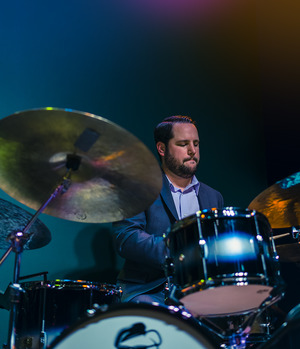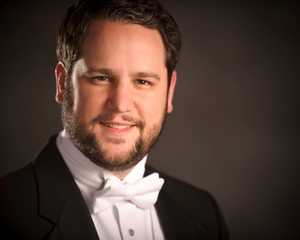|
|
COMPOSERS' CORNER VOL. XI March, 2017 Connect...Create...Culminate with Guest Contributor Jacob Polancich Consider a long-term project that will make a lasting impression on your students and our profession. While there are countless ways to encourage life skills through music, one of the most comprehensive is to connect with a composer, collaboratively create a piece, and culminate through performance. Throughout the commissioning process, we are charged with adding a new piece of music to the repertoire while teaching unique and creative life-skills to our students.
To ensure smooth commissioning process, a detailed contract must be drafted and adhered to. Reach out to your administrators to ensure legality and appropriate language. While both the commissioning organization and composer are entering into a binding, legal contract, clear communication is essential. The contract should address some of the following items: composer, consortium organizations, length of the work, payment schedule, completion deadline, premiere rights, travel arrangements/expenses, and recording rights. With a good contractual foundation, the project is ready to begin. As my colleague Paula Crider states: “Reverberating within the musician’s soul is the desire to create, with the potential to touch our humanity in a place that nothing save music can.” The creative process is the fun part, the most sensitive, and the most meaningful. Consider how involved the participating students should be as the piece is developed. Student input will fluctuate depending on the composer and their creative intentions. For example, we had the great fortune of commissioning Michael Markowski’s Instinctive Travels in 2009. While Mike and I corresponded regularly about the process of the work, my students were not involved in the creative process. They did provide input on some of the orchestration and technical demands of their instruments. We also interacted with Mike via Skype and even created a video capturing student/composer interviews and rehearsal footage.  We also had the honor of commissioning jazz educator/composer Fred Sturm before he passed in 2014. Fred was adamant that the Jazz Ensemble students be directly involved in the creative process...right down to the motives on which the piece was designed. Students developed their musical thoughts over the course of about two months while Fred eventually “organized” their ideas into a fluid work. This process was very collaborative and felt meaningful in the end. We also had the honor of commissioning jazz educator/composer Fred Sturm before he passed in 2014. Fred was adamant that the Jazz Ensemble students be directly involved in the creative process...right down to the motives on which the piece was designed. Students developed their musical thoughts over the course of about two months while Fred eventually “organized” their ideas into a fluid work. This process was very collaborative and felt meaningful in the end.Much like a musical composition, the stages of a commission project can be quite organic and unpredictable. Sometimes, we just need to let the music go where it needs to go! Above all, the students’ experiences must be at the top of the priority list. I often ask myself “What will give these kids the best chance to succeed?” The piece is finished, edits have been made, rehearsals have come and gone...it’s time to culminate the experience. Make arrangements for the composer to work with your students in person. Prior to the visit, plan for the composer’s travel costs, schedule an appropriate amount of rehearsal time, contact local PR outlets, and promote on social media. Invite other music students, teachers, administrators, school board members, and community members. You have invested a lot of time and energy into the project and it should be celebrated! Following the culminating event, it is important to follow up with the composer with regards to performance recordings, printed programs, a schedule of performances with other consortium members, etc. It is also important to reflect on the process through student feedback. The commissioning organization and composer now share a special bond through that piece forever. Take the first step to connect with each other, consider the impossible, make it possible, then share the experience with your students and others. What are you waiting for? Connect, CREATE, Culminate!  Jacob Polancich is the Director of Bands and music department teacher leader at Arrowhead Union High School (Hartland, WI) where he conducts the Wind Ensemble, Wind Symphony, Jazz Ensembles, Marching Warhawks and instructs the Music Theory course. He holds a Master of Music (M.M.) degree in wind conducting from the University of Wisconsin – Milwaukee and a Bachelor of Arts (B.A.) degree in Music Education from Augustana College (Rock Island, IL). He is also an active bassoonist and percussionist, having performed in a variety of ensembles throughout the United States, Canada, United Kingdom, and the Republic of China. He continues to serve as an adjudicator, presenter, performer, and guest conductor for festivals and concerts. Jacob Polancich is the Director of Bands and music department teacher leader at Arrowhead Union High School (Hartland, WI) where he conducts the Wind Ensemble, Wind Symphony, Jazz Ensembles, Marching Warhawks and instructs the Music Theory course. He holds a Master of Music (M.M.) degree in wind conducting from the University of Wisconsin – Milwaukee and a Bachelor of Arts (B.A.) degree in Music Education from Augustana College (Rock Island, IL). He is also an active bassoonist and percussionist, having performed in a variety of ensembles throughout the United States, Canada, United Kingdom, and the Republic of China. He continues to serve as an adjudicator, presenter, performer, and guest conductor for festivals and concerts.Jake will be taking his band to Ireland in April with World Projects. Click below to start planning your trip today!
|



